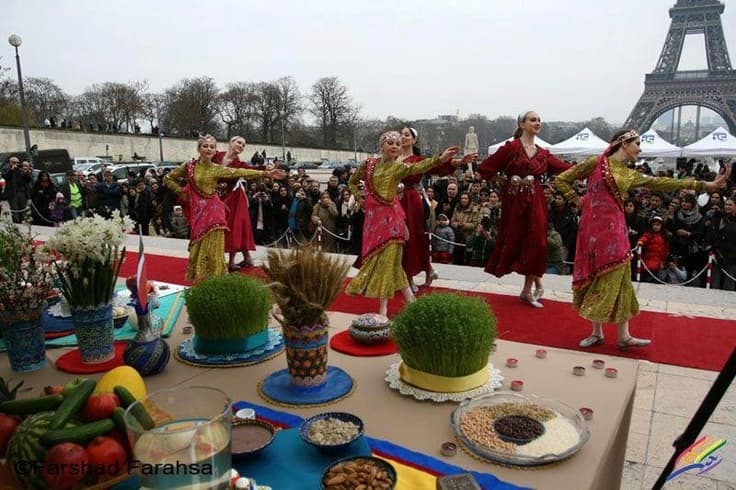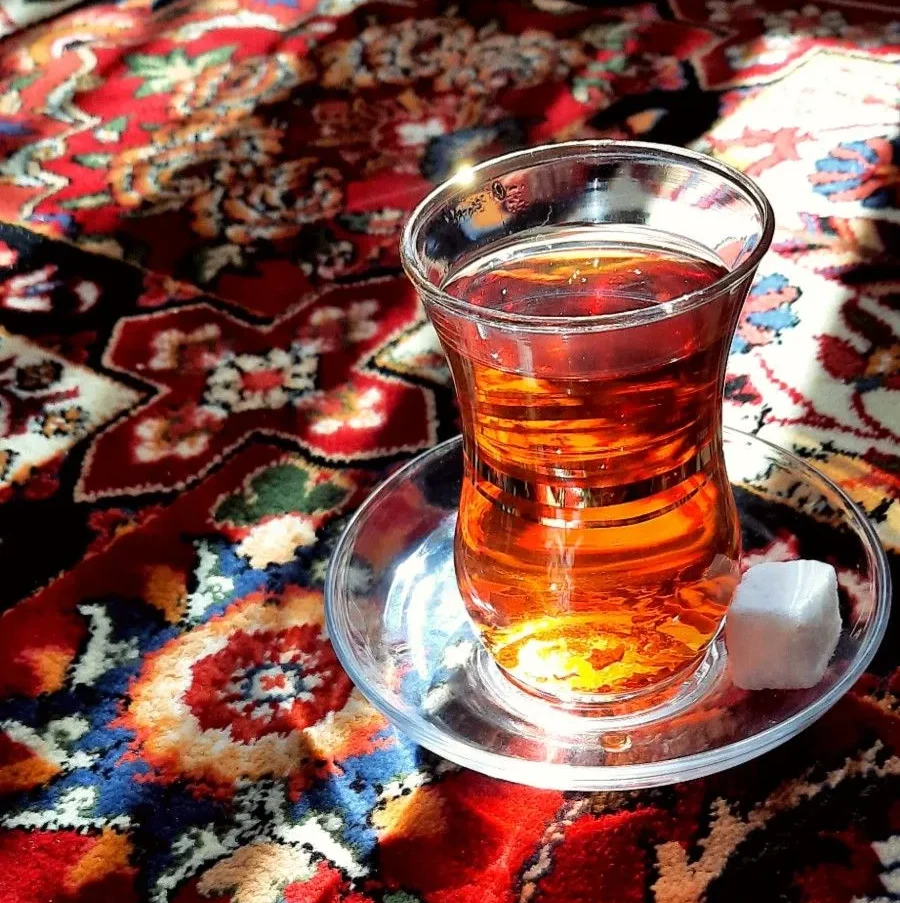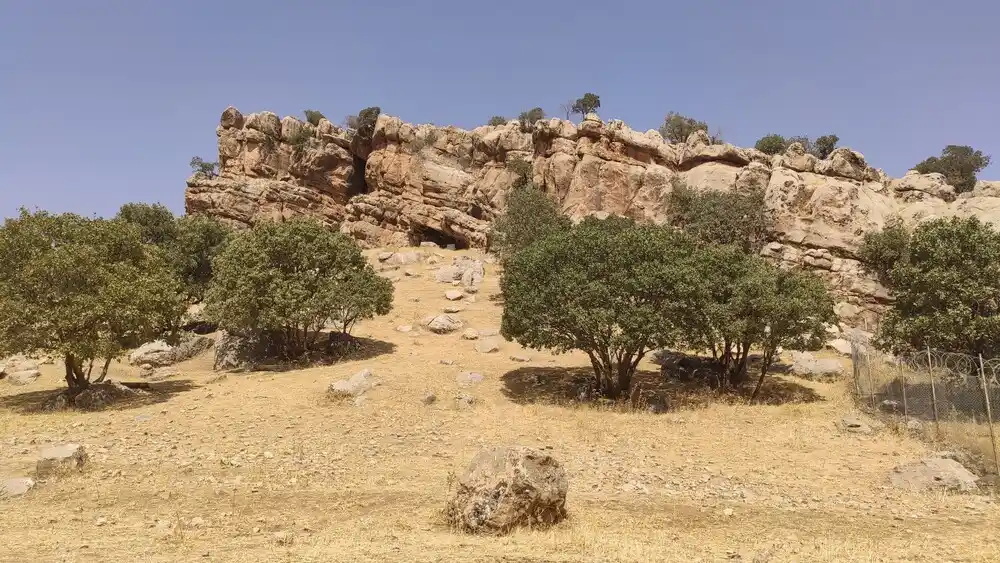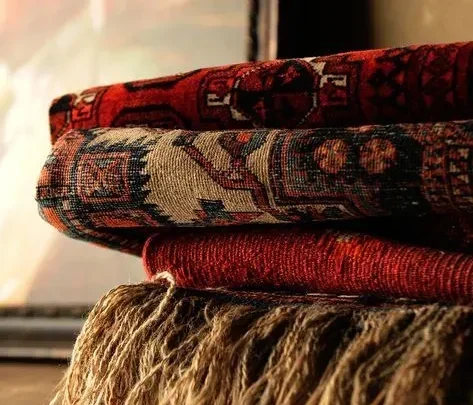Iranian new year nowruz

- Persis Collection
- 6 February 2024
- Blog
- 3 minutes
Nowruz or Iranian new year
The significance of Iranian Nowruz (Iranian new year) extends far beyond mere merrymaking; it embodies profound cultural heritage as well as spiritual significance for millions of Iranians and other communities across Central Asia, the Middle East, and beyond. With its roots firmly planted in nature’s cycles and ancient traditions such as Haft-Seen (the setting of seven symbolic items), Chaharshanbe Suri (a fire-jumping ritual), and Sizdah Bedar (a day for outdoor picnics), Nowruz weaves together themes of hope, prosperity, cleansing rituals, family unity, and gratitude for nature’s bounties. In this article, we will delve into the enchanting world of Iranian Nowruz – exploring its historical origins, enduring customs that continue to thrive today, and its timeless message of renewal that resonates with people from all walks of life.
Nowruz Customs and Traditions
The Haft-Seen Table
Central to the Nowruz celebrations is the Haft-Seen, a ceremonial table setting that includes seven items starting with the Farsi letter ‘S’ or ‘Seen.’ These items are not random; each carries profound symbolism. They include Sabzeh (sprouted wheat grass, symbolizing rebirth), Samanu (sweet pudding, indicating affluence), Senjed (dried oleaster fruit, representing love), Seer (garlic, symbolizing medicine and health), Seeb (apple, denoting beauty and health), Somaq (sumac, signifying the sunrise), and Serkeh (vinegar, symbolizing age and patience).
Festivities and Public Celebrations
Nowruz brings people together, weaving the social fabric tighter. Public celebrations include music, dance, and communal feasting. The streets bustle with vibrant colors and joyous gatherings, reflecting the spirit of rejuvenation and community bonding.
House Cleaning and New Clothes
Preparations for Nowruz start with thorough house cleaning, called Khouneh Tekouni or “shaking the house.” This symbolizes a fresh start and clearing out old energies. People also buy new clothes to reflect the renewed spirit of the new year.

Nowruz and Its Universal Appeal
In 2010, the United Nations General Assembly recognized the International Day of Nowruz, cementing its place as a global festival promoting peace and solidarity. Nowruz’s themes of renewal, family bonding, and respect for nature resonate universally, crossing cultural and national boundaries.
The Culinary Delights of Nowruz
Food plays a central role in Nowruz celebrations, with traditional dishes gracing tables and signifying various aspects of life and nature. Sabzi Polo Mahi, a dish made from rice, herbs, and fish, symbolizes abundance and prosperity. Kuku Sabzi, an herb frittata packed with greens, speaks of the rebirth and freshness of spring. Sweets such as Baklava and Naan Berenji (rice cookies) are shared, symbolizing the sweetness of life.
Nowruz in Literature and Arts
Nowruz has been a muse for poets, artists, and thinkers throughout the centuries. The works of the great Persian poets, such as Hafez and Rumi, are often recited during Nowruz 2024, their profound words echoing the themes of renewal and the cyclical nature of life.
Nowruz Today: A Global Celebration
In today’s interconnected world, Nowruz is not confined to its geographical origins. It is celebrated in many countries across Central Asia, the Middle East, the Caucasus, the Black Sea Basin, the Balkans, and beyond. The festival has adapted to local cultures. Yet its core themes—renewal, family, and the triumph of good over evil—remain universal.
As we embrace the spirit of Nowruz, we immerse ourselves in a celebration that transcends mere festivity. It’s a time for introspection, for revitalizing bonds with loved ones, and for respecting the natural world that sustains us. Nowruz is not just a mark on the calendar; it’s a journey into the depths of tradition, a narrative woven into the fabric of time, and a dance of cultures that enriches the tapestry of human experience.
New Year Nowruz (Iranian new year)
The allure of Nowruz lies in its rich tapestry of customs and rituals that encapsulate the spirit of new beginnings. From haft-seen tables adorned with symbolic items representing abundance and prosperity to lively street parades filled with music, dancing, and colorful costumes, this festive celebration is an immersive experience that captivates all who partake in it. Beyond its cultural significance, Nowruz reminds us of our shared humanity. It is a time to set aside old conflicts and strengthen bonds between generations, fostering unity in diversity. Join us to explore the rich traditions that make Nowruz a unique celebration of hope and harmony.
In celebrating Nowruz, we celebrate the diversity and the unity of the human spirit, the relentless flow of time, and the eternal hope for a future as promising as the first rays of the vernal equinox.










Comments